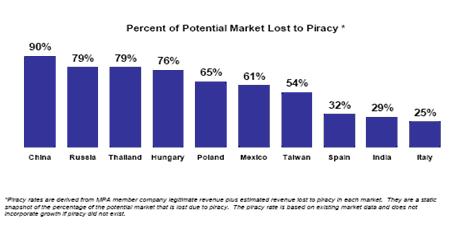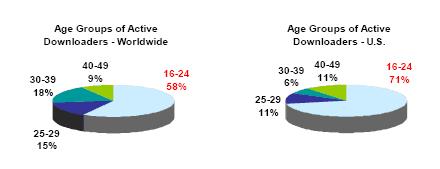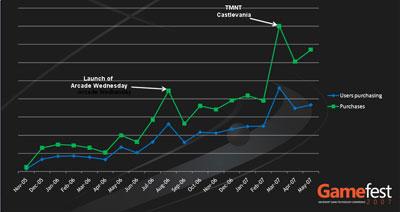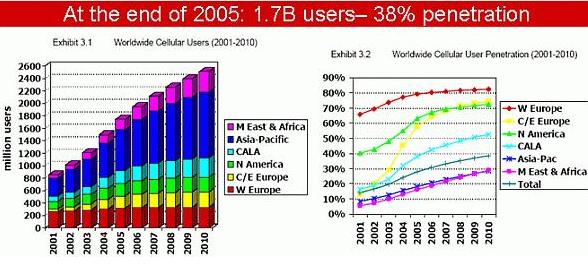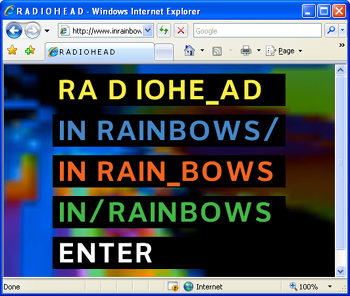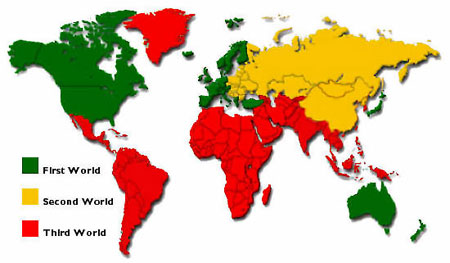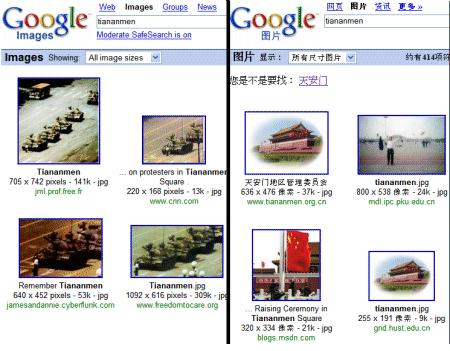Courses/Computer Science/CPSC 203/CPSC 203 2007Fall L04/CPSC 203 2007Fall L04 TermProjects/Copyrighting: Are You a Repeat Offender?
Contents
Copyrighting
Group Name
The A-Team
Group Members
Jordan Tam, April Wiscombe, Arvind Bhatia, and Hena Qureshi
Issue and Project Statement
How does the legal system monitor copyrighting? How effective is the copyrighting law and how is it enforced?
In the modern world illegally downloading works such as movies, books, music, and software has become increasing popular. Advanced networking programs make these works easily accessible without gaining proper authorization from companies and continue to remain a step ahead of copyright infringement laws. Even though the law has been set in its place, it is not consistently enforced which has led to many disputes among the producers of the work. Infringement of the copyright law can lead to the consequences of fines and possible jail time. Millions of people each year get away with theft while a select few get fined much more than they can afford. Is this right and fair? Whe we look at an issue like this, we can not soley blame the downloader, but the enviroment he or she lives in. We believe that the consequences of infringement upon copyright laws should be altered in developing countries, politically controlled countries and people who are trying to seek a better education because there are many benefits in downloading that are commonly overlooked for these people.
Copyright Law
Definition
The copyright law protects the work of authors, artists, composers and others from being used without permission. Basically, the copyright law is a set of exclusive rights which gives an individual the "power to perform an action or acquire a benefit and to permit or deny others the right to perform the same action to acqurie the same benefit".
Copyright covers only the form or manner in which ideas and information have been manifested. For example the copyright of Disney's Mickey Mouse prohibits unauthorized parties from distrubuting copies of the cartoon or creating works, which mimic Disney's Micky Mouse. 
However, it does not prohibit artisitc works about anthropomorphic (attribution of unique human characteristics and qualities to non-human beings) mice in general.
History
Copyright was invented after the printing press and when the literacy rate increased in the population. The origin of copyright came from Britain, when the king was concerned with unregulated copying of books and used his position to enforce the Licensing Act of 1662. This act established a register of licensed books and required a copy to be deposited with the stationers Company. These printing companies would than have monopoly on the printing of the work. Authors were not allowed to legally self publish their work nor were they given royalties for the books that sold.
Statue of Anne was created in 1709 and implemented in 1710. This act allowed authors rather than printing companies with the monopoly of the reproduction of their work. The authors were given these rights for fixed periods of time. This act was considered the first really law of copyrighting. Also note this act was usually only applied for works created within that country. Which meant a work published in the UK would be copyright protected there, but in Italy.
The Berne Convention for the Protection of Literary and Artistic Works was an International agreement about copyright developed in 1886. Under this act an author does not need to register or apply for a copyright. As soon as their creation is written or recorded in some physical manner, its author is automatically entitled to the copyrights of that work until they disclaim them or the copyright expires. This allowed for foreign authors to be treated equivalently with domestic authors.
Copyright Expiration Date
Copyright time periods are divided in a variety of lengths in different jurisdictions, with different categories of work and length and weather the work is published or not. The general default time period for most work is the life of the author and an additional 50 or 70 years. Expiration always occurs at the end of the year concerned, rather than the day the author died.
Public Domain
Public domain means creative work can be used by the public, if there are no laws which restrict its use by the public. When the term expires for a piece of work or invention and its copyright is not renewed than it is released to the public domain.
Some examples of expired copyrighted work released to the public domain are the Three Stooges (due to failure to renew copyright), inventions of Thomas Edison, works of Carlo Collodi, Mozart, Mark Twain and many others.
How Sharing/Distribution of Copyright Informaiton Occurs
One of the biggest sources of passing illegal work is through peer to peer and file sharing. P2P (peer to peer) allows people worldwide to share files and data. So people can download those files to their computer.
Infringement
Primary Infringement Liability
Anyone who reproduces distributes and prepares derivatives works based on the copyright work, with out permission from the author. Also, anyone who used the work for financial gain.
Secondary Infringement Liability
Secondary Infringement Liability states the possible defendant who may not be a copy right infringer directly, but who may have encouraged or induced copyright infringement by another(indirectly).
Consequences of Infringement
In general....
Statuary Damages act allow for the recovery of damages per infringement “in a sum of not less than $750.00 or more than $30,000.00. This is only when the copyright owner may elect (before final judgment) to recover.
If the copyright owner sustains the burden of proving and the court finds that the infringement was committed wiling fully by the defendant, statutory damages increase to a sum not more than $150,000. If the court finds the defendant not
The fine and charges vary for the type of work, amount downloaded and what you used it for. It can also lead up to ten years in prison. For more information Criminal Offenses
Other consequences....
"You could lose your reputaion, promotion prospects or even lose your job." Depending on the extent of an individual's infringement to the copyright law, can lead to the company or organization they work for being investigated.
Market Effects
The net effect of downloading different types of copyrighted material is somewhat controversial. When looking at the market as a whole there are two main perspectives that can be argued. One perspective is from the producers such a big record labels or movie studios and the other comes from the downloaders themselves.
Producers
All producers can argue that they should have the right to protect their created work against any type of theft. The use of copyrighting in theory gives them the power to stop any reproduction of their own works but with the increasing popularity of downloading it has become difficult to monitor. Those involved with any form of copyright infringement such as piracy can effortlessly distribute almost any type of media with a slim chance of getting caught.
According to the MPA (Motion Picture Association), piracy is the biggest threat to the U.S. motion picture industry. A recent survey done by this association in 2005, showed the following results:
-U.S. motion picture studios lost an approximate total of $6.1 billion to piracy worldwide (80% of these losses resulted from overseas piracy and 20% from piracy in the U.S)
-62% of the $6.1 billion resulted from piracy of hard goods (DVDs, etc.) and 38% from internet piracy.
-Piracy rates are highest in China (90%), Russia (79%), and Thailand (79%)
-The worldwide motion picture industry, including foreign and domestic producers, distributors, theatres, video stores, and pay-per-view operators, lost a total of $18.2 billion in 2005 as a result of piracy.
-The typical pirate age 16-24 and male, 44% of MPA company losses in the U.S. are attributed to college students
Downloader Pirate Profile
The above pie graphs, illustrate that age groups of active downloaders', both worldwide and U.S. As seen from the above data the majority of offenders are between the ages 16-24. Most of these individuals are usually compelled into the uasge of internet piracy.
These are the typical results, an individual researching on internet piracy may find on the internet. However, the individual will never research as to why piracy rates are the highest in China, why $6.1 billion is lost to movie piracy each year, or why the typical age of a downloader is 16-24. These are all questions which need to answered before such statistics are seen.
Producers of such products are creating monopolies for themselves, setting prices as high as they want. For example to rent a latest release an individual has to pay anywhere from $6 .00 to $10.00. To purchase a pay-per-view movie, an individual has to pay anywhere from $4.00-$8.00. To go watch a movie in the theatres there’s an expense of at least $10.00. If these prices were already not high enough, the demand of latest releases usually results in no available hard copies at many retail locations for weeks, sometimes even months. Not all individuals around the world can afford such prices, especially if he/she knows they can download the movie for free, or even purchase a pirated copy for a very minimal cost. People between the ages 16-24 are usually in high school or post secondary, some with part time jobs, others just trying to get through their education. These students usually cannot afford to complete all the leisure activities they please, this too many times leads to increasing piracy. The government needs to take control and set price ceilings so it affordable for all individuals. Despite the $6.1 billion dollar loss by the MPA to pirating, they are also making a profit of an approximately $40 billion.
We Love Microsoft Piracy in China: Bill Gates
The MPA has trouble when they lose $6.1 billion dollars in a year. Imagine losing more than this in one month. Microsoft sold over 20 million legal copies of Windows Vista globally in the first month of their launch, from which only 244 copies were officially sold in China. Most individuals in China preferred to buy the $1 pirated Vista DVDs. Yet Bill Gates has no problem with this. Bill Gates believes in his "something is better than nothing" strategy. Gates knows people in China are pirating so much software, but he rather have them use Microsoft than any other software. He says this increases the overall number of Microsoft software users and some of them may eventually convert into paying customers. Currently Microsoft Windows is used on an estimated 90% of China’s 120 million PCs. Bill Gates also understands that not all individuals can afford such software prices, and is now looking into giving special deals to a variety of people. For example, he has just introduced $3 package of Windows and Office to Students in China. This is an excellent way to promote education and the purchasing of Microsoft Software. Where individuals can pay $1 for the illegal software, $2 more is not a lot more for the licensed copy of the software. Microsoft is also offering studetns around the world with opportunities to download Microsoft Office for cheap prices. For example,purchasing Microsoft Office Professional 2007 for Future Shop would cost an individual $690.00, whereas students can dowload it for $65.00 on www.ultimatesteal.com.
Consumers
Even though producers claim severe losses due to file-sharing, it is not completely at fault. According to a study done by Harvard University Associates they found that the market effect of music downloading was ``statistically indistinguishable from zero.`` Many downloading or pirating loss estimates for record sales find inaccurate results because they are comparing people who download with the people who legally purchase the products. Even if file sharing never exist at all a large portion of files that were downloaded by users would still not be actually purchased and the exact number of lost sales is difficult to find. Other than file-sharing, there may also be many other many contributing factors to the lost revenues. An example of this would be the growing popularity of many alternate forms of entertainment in the last couple of years. The average amount of spending on electronics like cell phones and video games has grown exponentially from 1999 to the present.
Xbox Live online gaming subscription growth
Gaming in the last few years gaming has grown into a billion dollar business in the U.S. alone. In Canada, according the Electronic Software Association of Canada the gaming industry is already worth more than 1.5 billion dollars which is about four times the estimated amount of Canadian box office ticket receipts.
Cell Phone Network Growth
According to Statistics Canada, the average household spending on cell phones and other wireless services is up 21% from 2004 to 2006 which amounts to about $410.
Benefits of Downloading
- Many of the smaller music artists gain exposure to a larger audience
- Reduction in the cost of CD's
- Innovations with online software and technologies
Musicians
Many musicians such as Moby, System of a Down, Public Enemy, and Robbie Williams have openly spoken in public stating that they were angered with the record industries views on file-sharing and their lawsuits against downloaders. Out of frustration they have said that big record labels should not take lawsuits toward music fans downloading music and should try to instead take advantage of the evolving technology. The band Radiohead has taken this view a step further by releasing their new album titled In Rainbows on October 10th online as a digital download. To the surprise of consumers, they can freely choose the price that they feel is appropriate for it even if they feel they should not have to pay for it. In a recent interview with the bands lead singer Thom Yorke, he said "I like the people at our record company, but the time is at hand when you have to ask why anyone needs one. And, yes, it probably would give us some perverse pleasure to say 'F___ you' to this decaying business model."
Access To Information in Impoverished Nations
In our modern society, internet access is not only abundant but quite often taken for granted. Many third world nations are deprived of this amazing ressource. More availability to access the internet in these impoverished countries, including books and other texts, can initiate a more knowledgable generation. With a limited, or nearly abolished copyrighting law, such ressources would allow these thrid world countries the capability to educate themselves of many relevant issues. These issues include global events, relativity of their economy, and even simple assesments such as agriculture in their own backyard. The following segment will illstrate the benefits of copyright laws upon these nations.
Statistics
Over 186 countries can be reached by e-mail. Still, 98 percent of all the computer hosts on the Net are located in countries in North America, Western Europe, Japan, and Australia—countries that together have only 15 percent of the world's population. The continents of Africa, Asia, and South America are tiny islands in cyberspace. As noted on the graph about, it can be visually noted that these countries with less or no internet access are represented by a red color. This correlating data to the map can bring an alarming conclusion. Those of a first world status are abundant in technological ressource availibity and in comparison, with a dimishing status, these ressources also diminish. Education can univerally better the world. These nations need to attain equal opportunity to access educational ressources throught the internet. overcoming a lessened copyright law can provide this amenity.

Exchange Rates/Wealth
Not every child can physically hold a literature or educational book in their hands. A lessoned copyright law in third world countries would permit the next generation of young adults and children to attain the knowledge that will enable them to a brighter future. Access to information on the internet through a minimized copyright law would allow citizens of an economically deprived nation to not only educationally better themselves but even agriculaturally. Textbooks depicting better methods on efficiently running day to day life can improve both physical and mental health in these nations. The currrency of dollars across these nations also influences the availibility of textbooks in these nations. A hundred dollar textbook is not within the realm of limits in a third world country such as Africa. These benefits are achievable and with a smaller price tag, can further educate and improvise on a deprivation in third world countries.
Poor Quality/Shortage of Information
The developing world is not getting any benefit from the wealth of health information available on the internet, say experts. The vast majority of people in developing countries have no chance of access to the internet, and much of the information. On November 17, as many as 17,000 people from around the world attended a United Nations conference targeted at closing the now famous divide. This divide consisted of bridging the gap around access to the internet and technologically tool (and skills) between rich and poor countries. Those in poverty have much less availabitlity to tools on the internet. Songs, movies, literature are a distance ressource in such nations, let alone having these ressources upon a digital screen. Copyrighting has a price upon it's function, consepuently this bill needs to either be met in full or dissilved. Who should be paying this bill? It shouldn't be those children who are living in this scarcity yet the government in these third world countries should be evaluating their place in this situation.
Censorship
Government Control
Internet piracy may be a growing issue in today’s society, but what truly leads people to commit such illegal acts? Downloading material of the internet has put many people in jail, and led to thousands of dollars of fines, yet people still decide to continue downloading. What is the true reason as to why people still continue to download...
Government Censorship
Definition: government censorship is the restraint or deletion of objectionable information
In many places around the world, the government is censoring all the material its citizens are able to access. Anywhere from text messaging to what sites an individual visits on the internet is censored by the government. Government censorship is restricting people’s rights and freedoms, and is often associated with the infringement of human rights, dictatorships, and repression. The reason illegal activity over the internet is so vast is because in many cases the government is restricting the citizens from what they can see and access.
Example: China has a no motion picture rating system, meaning movies produced around the world, including China, must first be censored in-order to be deemed suitable for all audiences to view. Either inappropriate scenes, according to the government, are removed from the movie or the movie is completely banned from the country. China government as gone so far as to only allow 20 imported films permission to screen each year in China.
Examples of Scene Deletions in China:
-showing hanging laundry in Shanghai during Mission: Impossible III
-removal of a reference to the Cold War in Casino Royale
-removal of a footage containing Chow Yun-Fat in Pirates of the Caribbean: At the World’s End
Examples of Banned Movies around the World:
-Borat, The Simpsons Movie – China
-300, The Simpsons Movie - Burma
-Bruce Almighty, The Matrix Reloaded, Borat – Egypt
-Pinocchio, The 40 Year Old Virgin, The Da Vinci Code, Borat, 300 –Iran
Government censorships described above are the reason as to why many individuals in other countries turn to the internet to watch movies of their choice. The government should have no right to restrict the rights of its citizens, and what they want to watch. This is one of the reasons why internet piracy is growing at such a rapid rate.
Another reason why internet piracy is growing is the rapid increasing prices. Individuals in third world countries do not have sufficient amount of money to spend on leisure activities, such as watching movies. The government needs to take a stand and set price ceilings for such products, so it is affordable to everyone. For example, the cost of buying a Microsoft software can range anywhere from $300-$700, and even more. Not all individuals can afford such a price especially if they know they can download this product for free off the internet, or pay a very minimal amount to purchase a pirated copy.
Circumstances described above are what truly lead to internet piracy. Who is really to blame for this, individuals or the governments and greedy companies?
Censoring
Another thing to note is that information censored in politically controlled countries. The information is censored for the benefit of the government; the government would not want any information that would jeopardize their position. Because China is a communist country they do not want their citizens to find books on democracy. These citizens then turn to downloading these books. In North Korea, the government indoctrinates the people into believing there is no fault in their present leader and what ever he says is for the best. People in a situation like this, don’t really see the true face of the leader. But if the copyright law was altered for these people and people were allowed to download books and videos from the internet, then they would be more aware of their government’s actions. Sometimes being blind eyed to the actions of the government lead to corruption. Downloading allows the people in politically controlled countries to expand their knowledge and learn the real truth about their government.
Conclusion
To conclude, the copyright law should be altered for developing countries, government controlled countries and for people who are trying to seek a better education. Downloading movies and books allows the information to be more accessible, cheap and reliable for these people. The infringement of the copyright law is justified by the external factors that cause people to download. The enviroment one lives in plays a vital role on the impact of piracy. People in third world countries download because they can not afford to buy good quality sources of informations from books and movies. People in politically controlled envoroments download to gain reliable information that has not be censored or editted by their government. The effect of piracy on the market is supported by some companies. Also the statistics shown by some producers about the market is not fully accurate. All this information re-enforces the idea that people turn to piracy because of their enviroment.
References
Hena
Berne Convention http://en.wikipedia.org/wiki/Berne_Convention_for_the_Protection_of_Literary_and_Artistic_Works
History Of Copy Right Law http://en.wikipedia.org/wiki/History_of_copyright_law
Copyright US http://www.copyright.gov/title17/92chap5.html#501
Infringement of Copyright law http://findarticles.com/p/articles/mi_m0FWE/is_4_8/ai_n6108144
File Sharing http://en.wikipedia.org/wiki/File_sharing_and_the_law
Copyright Protection http://www.ic.gc.ca/sc_mrksv/cipo/cp/copy_gd_protect-e.html#5
Copyright Office Basics http://www.copyright.gov/circs/circ1.html
Copyright Reform http://pch.gc.ca/progs/ac-ca/progs/pda-cpb/reform/statement_e.cfm
Criminal Charges http://www.fast.org.uk/thelaw.asp
Peer to Peer Network http://www.techsoup.org/learningcenter/networks/page4772.cfm
Jordan
Comments on Harvard Paper http://www.news.com/2100-1027_3-5181562.html
Harvard File-Sharing Economics Paper http://www.unc.edu/~cigar/papers/FileSharing_June2005_final.pdf
File-Sharing Copyright Trial http://money.cnn.com/2007/10/02/technology/music_download.ap/
Trial Result http://www.foxnews.com/story/0,2933,299486,00.html
Movie Pirating Counter Argument http://www.xtrazone.com/movies-online/how-movie-studios-can-profit-from-pirating.html
Pirating Effects http://partners.nytimes.com/library/tech/99/07/circuits/articles/29pira.html
Pirating Profit http://www.time.com/time/magazine/article/0,9171,913591,00.html
P2P Market http://www.thelongtail.com/the_long_tail/2005/11/the_effect_of_p.html
False Loss Estimates http://arstechnica.com/news.ars/post/20070822-a13-billion-fantasy-latest-music-piracy-study-overstates-effect-of-p2p.html
File Sharing Both Sides http://www.heritage.org/Research/InternetandTechnology/bg1790.cfm
benefits of file sharing http://www.cippic.ca/file-sharing/
Arvind
10 Big Myths about copyright explained http://www.templetons.com/brad/copymyths.html
Copyright Act http://www.cb-cda.gc.ca/info/act-e.html
Teen Rockers Reap Benefits of Online Copyright Protections http://usinfo.state.gov/xarchives/display.html?p=washfile-english&y=2007&m=August&x=20070815111121bcreklaw0.010647
MPAA http://www.mpaa.org/
Police raid against illegal copying in Germany http://www.cdfreaks.com/news/Police-raid-against-illegal-copying-in-Germany.html
We Love Microsoft Software Piracy in China: Bill Gates http://labnol.blogspot.com/2007/07/we-love-microsoft-software-piracy-in.html
China vows to bar software piracy http://www.iht.com/articles/2006/03/27/bloomberg/sxpirate.php
Piracy Study http://w3.bsa.org/globalstudy//
By the numbers: piracy rate in China down 10 percent http://arstechnica.com/news.ars/post/20070515-by-the-numbers-piracy-rate-in-china-down-10-percent.html
Crime Statistics > Software piracy rate (most recent) by country http://www.nationmaster.com/graph/cri_sof_pir_rat-crime-software-piracy-rate
The Cost of Movie Piracy http://www.mpaa.org/2006_05_03leksumm.pdf
Censorship http://en.wikipedia.org/wiki/Censorship
Picture of Censorship http://blog.searchenginewatch.com/blog/img/060131-china
April
Internet in the Third World http://www.widernet.org/intlinet/links/technology/Full%20Text/Zgodzinski/Internet%20in%20the%20Third%20World.htm
South African Internet http://www.isoc.org/inet97/ans97/brooks.htm
BBC News 'Digital Divide' Hits Third World Nation http://news.bbc.co.uk/2/hi/health/947030.stm
Canada Worse Than 3rd World Countries when it comes to Data Access http://www.thomaspurves.com/2007/04/09/canada-worse-than-3rd-world-countries-when-it-comes-to-mobile-data-access/
Welcome to Third World Network http://www.twnside.org.sg/
WSIS: More Internet, Less Poverty http://ipsnews.net/news.asp?idnews=31059
Internet foundation helps anti-poverty groups http://www.cbc.ca/health/story/2000/01/28/netaid000128.html
High Poverty vs Low Poverty Graph

History Of Copy Right Law http://en.wikipedia.org/wiki/History_of_copyright_law
MPAA http://www.mpaa.org/
Trial Result http://www.foxnews.com/story/0,2933,299486,00.html




